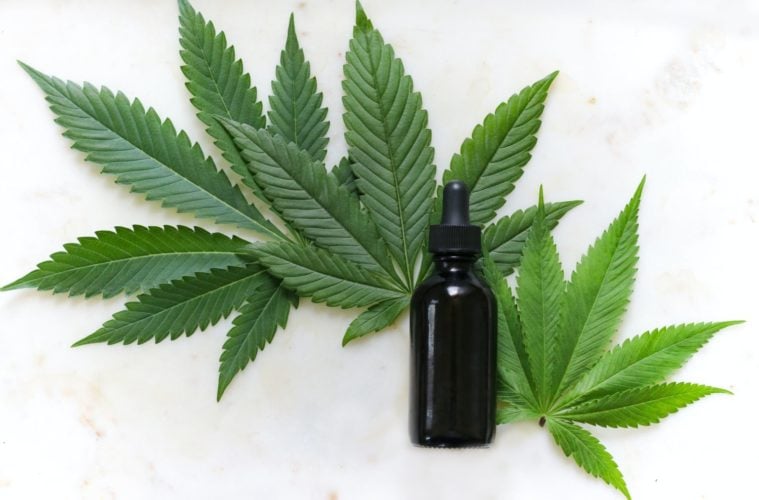California’s cannabis industry looks to have another shakeup via a new bill in Sacramento that would open up the legal CBD market to cannabis companies operating compliantly in the adult-use space.
But there also are concerns that AB-1656 could prove a double-edged sword. Yes it would be excellent for California’s struggling cannabis industry to have another mechanism to create value, but would the merging of the supply chain create opportunities that make it easier to trick the consumer hoping to get full-spectrum cannabis? The kind that’s still a felony to grow federally, even if we haven’t seen as many doors kicked in locally in recent years as enforcement has focused on rural cultivation in the High Desert, Sierras, and Emerald Triangle.
The bill would clarify the Medicinal and Adult-Use Cannabis Regulation and Safety Act, the bill that merged Prop 64 and the state’s then-forthcoming medical marijuana regulations, does not prohibit a licensee from manufacturing, distributing, or selling products that contain industrial hemp or cannabinoids, extracts, or derivatives from industrial hemp, if the product complies with all applicable state laws and regulations.
The bill’s State Assembly member Cecilia Aguiar-Curry (D-Winters) has been a key figure in the development of CBD and Hemp policy in California. For three years, she sponsored AB-45. Signed by Governor Newsom in October, the bill created a lot of much-needed oversight for those dabbling in the hemp industry.
“This is an opportunity for California to make it easier for its people to access a non-intoxicating alternative product they want, and for farmers to establish themselves in a fast-growing industry,” Assembly member Aguiar-Curry said at the time. “As a farmer myself, I’m excited we can provide this opportunity for California farmers, manufacturers and retailers to benefit from a booming global market for food and topical CBD products. It’s a victory on so many levels, three years in the making.”
We reached out to California NORML Deputy Director Ellen Komp to get her take on the new bill.
“This bill as written will allow cannabis licensees to sell hemp products,” Komp told L.A. Weekly. “From a consumer standpoint, it will be good to make state-tested hemp-derived products available to buyers in California.”
Komp went on to note CANORML expects that the bill will change a lot and see plenty of additions as it makes its way from committee to committee.
“We are expecting more complex language to be added to this bill as it moves forward, possibly including enacting a tax on hemp cigarettes, which would make them available in the regulated market,” Komp said.
Omar Figueroa also weighed in to L.A. Weekly on AB-1656.
Figueroa is a director at both the National Cannabis Industry Association and the Cannabis Travel Association International. He also is a Founding Lifetime Member and former director of the International Cannabis Bar Association, a Lifetime Member of the NORML Legal Committee, and recognized with the Distinguished Counsel’s Award by NORML.
At first glance, Figueroa doesn’t understand the need for the bill given all the work put into AB-45 and the infrastructure created there.
“To me this is kind of wacky because we also have this other system, which is the AB-45 system,” Figueroa said, before presuming someone participating in the legal cannabis market and CBD markets clearly pushed the bill. “I think the effect of this would actually join the supply chains; it would join the cannabis and hemp supply chain.”
We asked Figueroa if in the process of joining supply chains, while cannabis companies will have more room to make money and stay afloat while they wait for interstate commerce, would the worst of them have more room to try and slide hemp-derived products into the adult-use supply chain fooling consumers?
“Absolutely, you’re going to see the introduction of a lot of stuff that would have been laughed at [in the past] because industrial hemp has far fewer regulations than cannabis,” Figueroa replied.
Figueroa also questioned the testing hemp will be subject to — even to this day cannabis testing isn’t perfect. He expects in the future somebody with clean cannabis may end up contaminating it before it gets to market by mixing it with a hemp-derived product that didn’t face the same scrutiny.
“A lot of this stuff is going to end up failing,” Figueroa said, “If I were a producer or manufacturer, I would definitely have all the source material independently r&d tested before creating products, because if you’re like taking clean cannabis and mixing it with dirty hemp, you’re basically throwing money away.”
Advertising disclosure: We may receive compensation for some of the links in our stories. Thank you for supporting LA Weekly and our advertisers.

